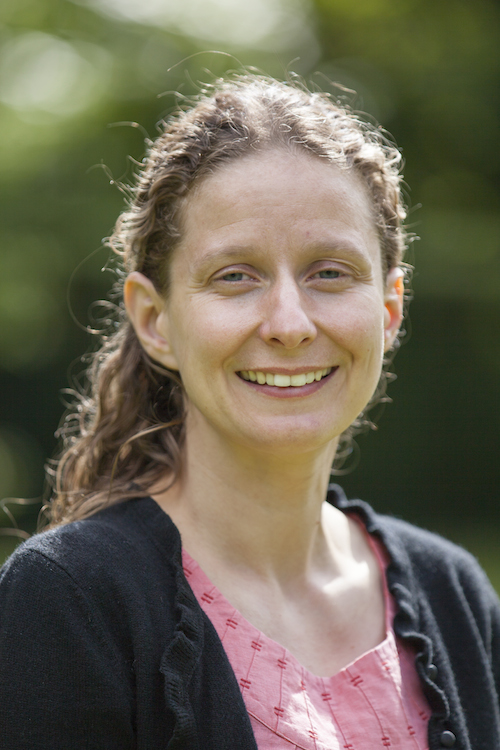
Pixabay
When Roger Bretherton worked as a clinical psychologist he would ask the question, “What skill is missing here?” What does this patient need to develop so they can, for example, be kinder to themselves – or to other people? These character strengths and virtues are now his chosen field now that he is a Principal Lecturer in the School of Psychology at the University of Lincoln.
Roger is interested in three main areas. He spends time exploring the methodologies and measurements that help a psychologist understand people at a human level. He is also engaged at a theological level, and trained as an existential psychotherapist. This combination of theology and psychology is a growing trend, especially in the US, where a number of educational institutions will encourage students to pursue studies in both and teach them how to integrate the two (for example, at Fuller Theological Seminary where the regular Faraday speaker Justin Barret is based). Finally, he is interested in the pragmatic – what works, or is useful to people.
In trying to find a research framework that draws on each of these interests, Roger started with one called ‘The Godly Love Model’. This way of thinking draws on research which shows that an experience of divine love can help people build more loving communities. His colleagues took issue with both the word God – which isn’t a great surprise in secular academia – but also with the word love – which is a bit of a surprise. Apparently many psychologists aren’t too hot on the idea that love is a scientifically provable concept. A more popular model is one that focuses on a number of clusters of character strengths and virtues – which can work across a variety of worldviews. Using this framework, he has been able to study character development and leadership in a range of circumstances.
In his seminar at the Faraday institute this week, Roger shared three studies that his research group have been carrying out. One is about intellectual humility in academic leaders – a title that Roger says always gets a laugh, but humility does exist among academics! His interest in the subject came from reading the New Testament and finding teaching about servant-hearted leadership.
There have been plenty of studies about humility in leadership, with the American business guru Jim Collins finding that successful companies are often managed by leaders who take personal responsibility when things go wrong, and give others credit when things go well. In their own study of humility in academic leadership, Roger’s research group found that there is a connection between higher degrees of intellectual openness and more effective leadership. Even more interestingly, someone who has a low opinion of their strengths is much more likely to be well-engaged in their work if they are managed by someone who is more humble.
Another study was on hope in response to ecological issues. A group of over 200 mainly female respondents were asked questions to measure their level of engagement in environmentalism, their levels of hope, whether they were flourishing in life in general, and their attitudes to material things. The findings showed that both hopefulness and environmental engagement were positively linked to flourishing. On the other hand, materialism seemed to be linked to lower levels of hope and flourishing. A more in-depth analysis showed that increased hope seemed to contribute to the link between environmental engagement and higher levels of flourishing. For those who were more materialistic, higher levels of hope were also linked to a higher degree of flourishing. So the message overall seems to be: it’s better to be more environmentally minded than materially oriented, but either way, it’s good to have hope!
The final study Roger mentioned is asking the question, can church-based groups help people in their character development? He has written a series of study material that uses both theological and Biblical principles, as well as psychological ones. Around forty groups have signed up to test the resource, answering psychometric questionnaires along the way. The character strengths he has chosen for the trial – one per session – are learning, hope, love, forgiveness, gratitude, persistence, humour and curiosity.
This course makes connections between each character strength and related Biblical principles. It also draws on the academic literature for studies of these strengths, and uses activities that might help people to work on these characters traits. Studies like this in the past have tended to find that people in church small groups are pretty healthy already (which is great!) but Roger is trying to find new ways to test whether character is helped by the course.
It was fantastic to hear from a psychologist who has been able to bring his faith to the table so openly, and use his research in service to the church. Roger’s work on the church-based material is still in progress, but the completed course should be available in 2020. I hope that it will be a very practical demonstration of how science and faith can work hand in hand to very fruitful ends.
The character strength s course is now available at thecharactercourse.com

© Faraday Institute
Ruth Bancewicz is Church Engagement Director at The Faraday Institute for Science and Religion. She studied Genetics at Aberdeen and Edinburgh Universities, and spent two years as a part-time postdoctoral researcher at the Wellcome Trust Centre for Cell Biology in Edinburgh, while also working as the Development Officer for Christians in Science. Ruth is a trustee of Christians in Science, and a Fellow of their US counterpart – the American Scientific Affiliation.




